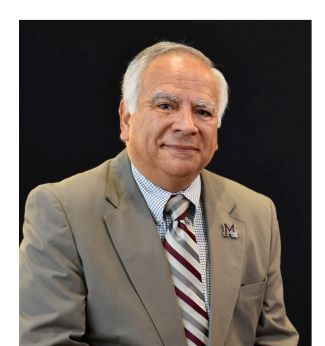
Friday, July 17, 2020
Dr. E. Nelson Escobar can add two more accolades to his resume after 11 years as an administrator, professor and small ruminant specialist with University of Maryland Eastern Shore Extension.
Escobar, interim 1890 associate administrator for UMES Extension, was elected to the Northeast Sustainable Agriculture Research and Education’s (SARE) administrative council. He also earned tenure and a promotion to associate professor in the university’s Department of Agriculture, Food and Resources Sciences.
The Northeast SARE is among four regional offices across the nation whose mission is “to advance – to the whole of American agriculture – innovations that improve profitability, stewardship and quality of life by investing in groundbreaking research and education.”
Supported by the federal National Institute of Food and Agriculture, SARE offers competitive grants to farmers, educators, researchers and nonprofit organizations who work with farmers and supports sustainable agriculture education.
“It’s a privilege to start serving on the northeast SARE council and represent UMES in an organization that focuses on profitable and sustainable food production, especially during this uncertain period in our nation’s history,” Escobar said.
Escobar’s research and extension activities focus on livestock production, ruminant nutrition, integrated small ruminant parasite management and honey bee colony management. He has participated in projects on the performance of sheep and goats to manage unwanted vegetation, the use of Controlled Internal Drug Release (CIDRs) for estrus (fertility) synchronization in sheep and goats to enhance year-round lamb and chèvon availability as commercial livestock, and education and training on integrated gastrointestinal parasite management in small ruminants.
He was recognized in 2013 for the extent and quality of his research when he was named the recipient of the Award for Excellence in Multi-State Research by the 1890 Agricultural Experiment Station Directors.
Escobar holds a doctorate in animal nutrition and management and a master’s degree in animal science from the University of Maryland College Park. His bachelor’s degree in livestock production was from the Universidad de El Salvador. He earned minors in biometrics, animal hygiene and plant pathology over the course of his academic career.
He is a member of the American Consortium for Small Ruminant Parasite Control, the American Society of Animal Science and the International Goat Association.
Gail Stephens, agricultural communications and media associate, School of Agricultural & Natural Sciences, University of Maryland Eastern Shore, 410-621-3850, gcstephens@umes.edu.

